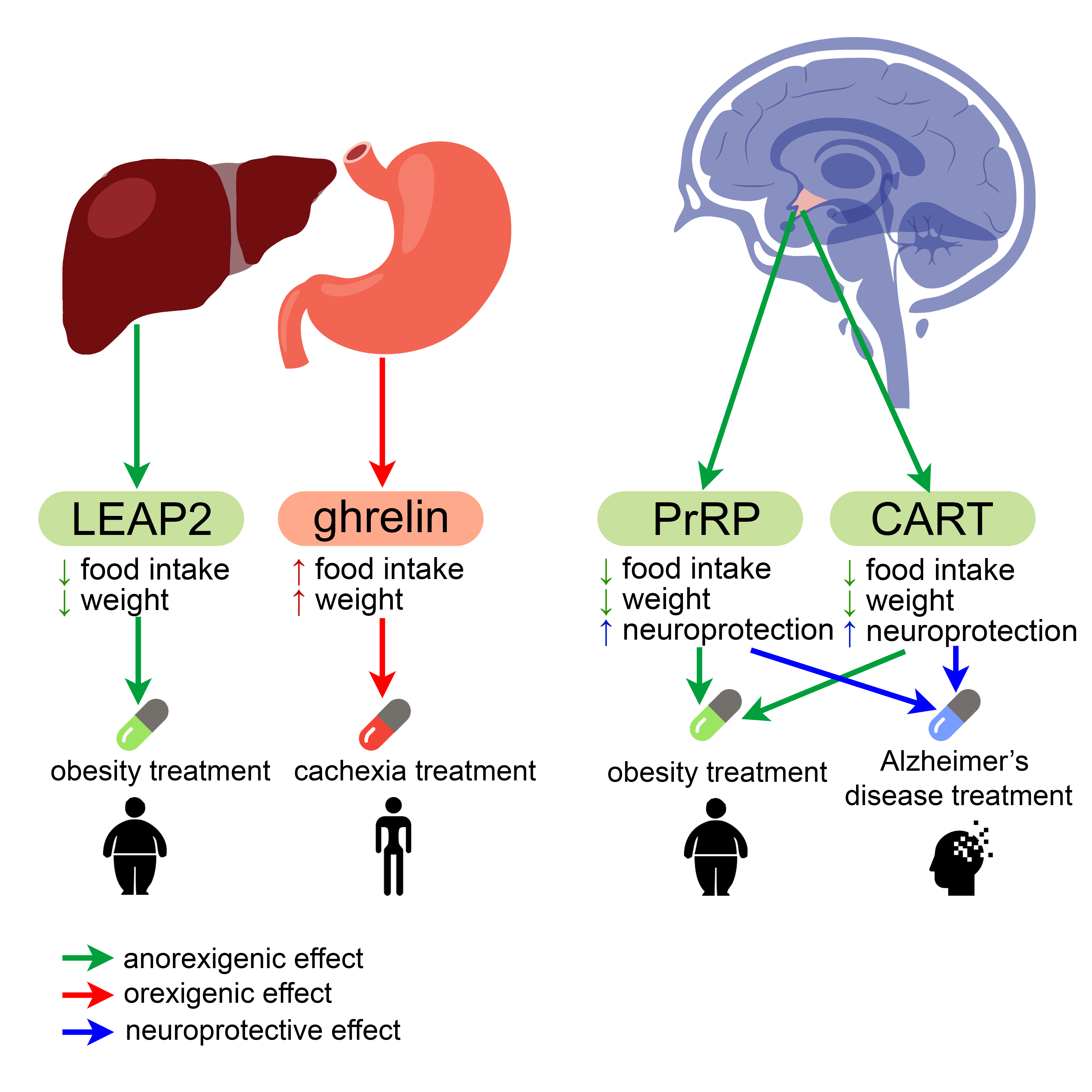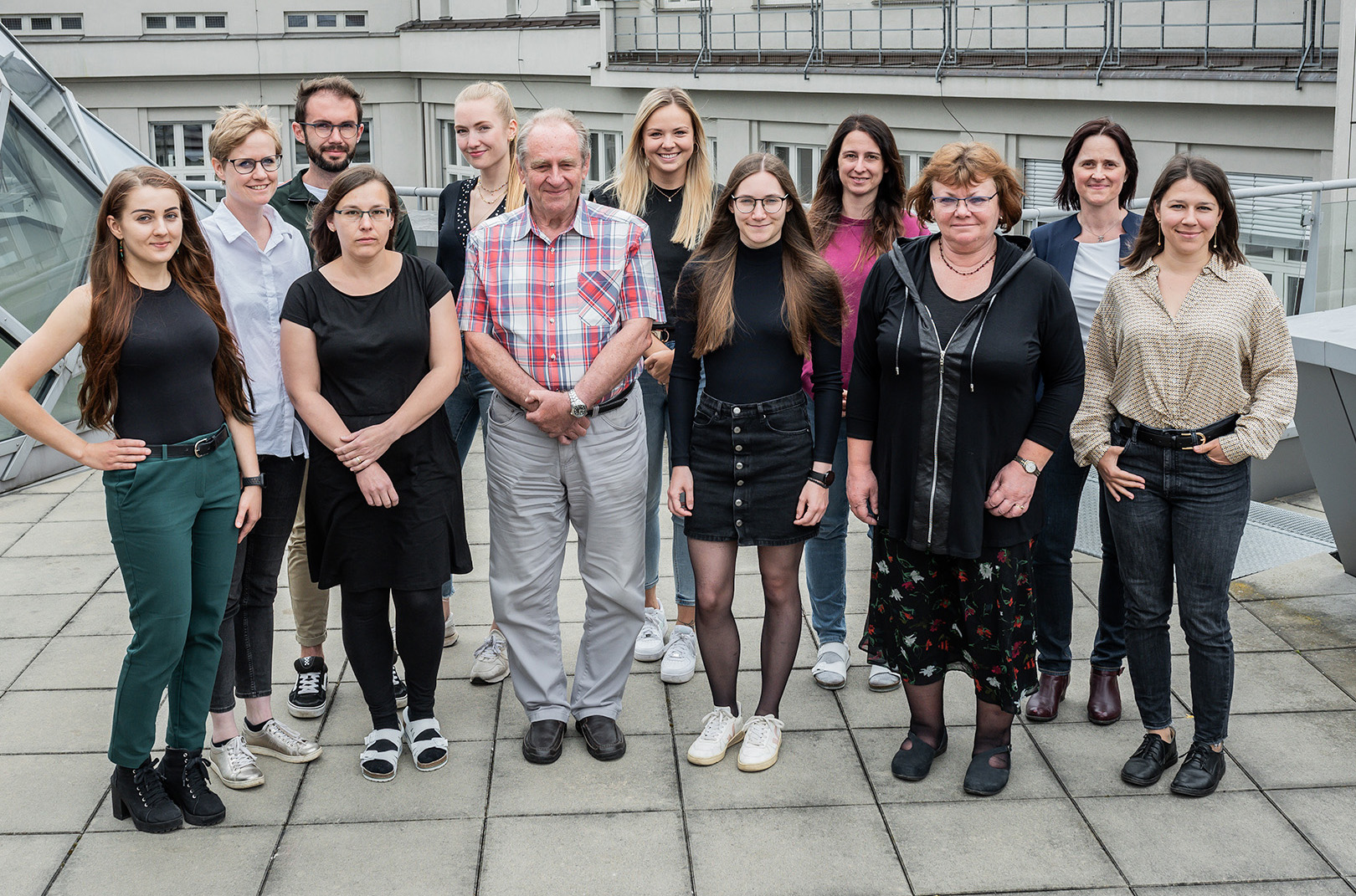About our group
Our research is focused on peptides involved in the regulation of food intake and processes related to obesity, diabetes and neurodegeneration. It combines biochemical, pharmacological and physiological methods and aims at clarifying the relationships among peptides involved in development of obesity in order to design possible therapeutics. Recently discovered anorexigenic neuropeptides, e.g. prolactin-releasing peptide (PrRP) and cocaine and amphetamine-regulated transcript (CART) peptide, represent new trends in development of anti-obesity agents. They target directly brain areas regulating food intake, but generally do not cross the blood-brain barrier if administered peripherally. We designed stable lipidized analogs of PrRP capable to act centrally, with prolonged half-lives and anti-obesity and antidiabetic effects after peripheral administration in mice and rats with diet induced obesity and insulin resistance. Type 2 diabetes and obesity were shown to be a risk factors for Alzheimer’s disease (AD), thus compounds with glucose lowering and/or anorexigenic properties were proposed to be neuroprotective. We demonstrated that PrRP is a potential neuroprotective tool improving spatial memory and attenuated two hallmarks of AD, Tau hyper-phosphorylation and β-amyloid plaques in mice with neurodegeneration. Orexigenic hormone ghrelin has unique role in food intake regulation and energy homeostasis. Recently, liver enriched antimicrobial peptide-2 (LEAP2) was identified as a ghrelin antagonist. Targeting ghrelin receptor pathway could aim to a new anti-obesity treatment.







